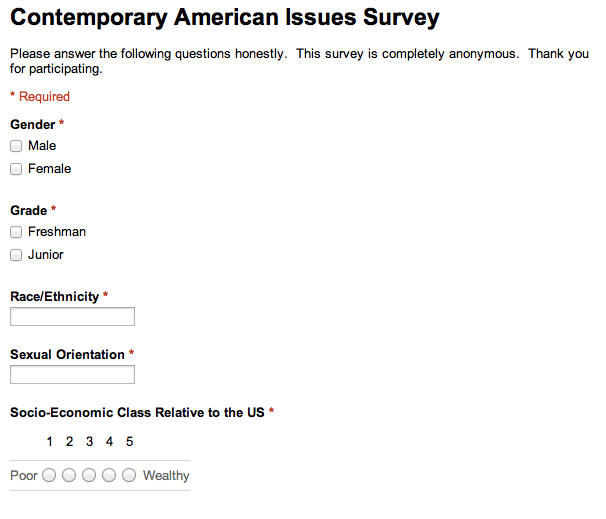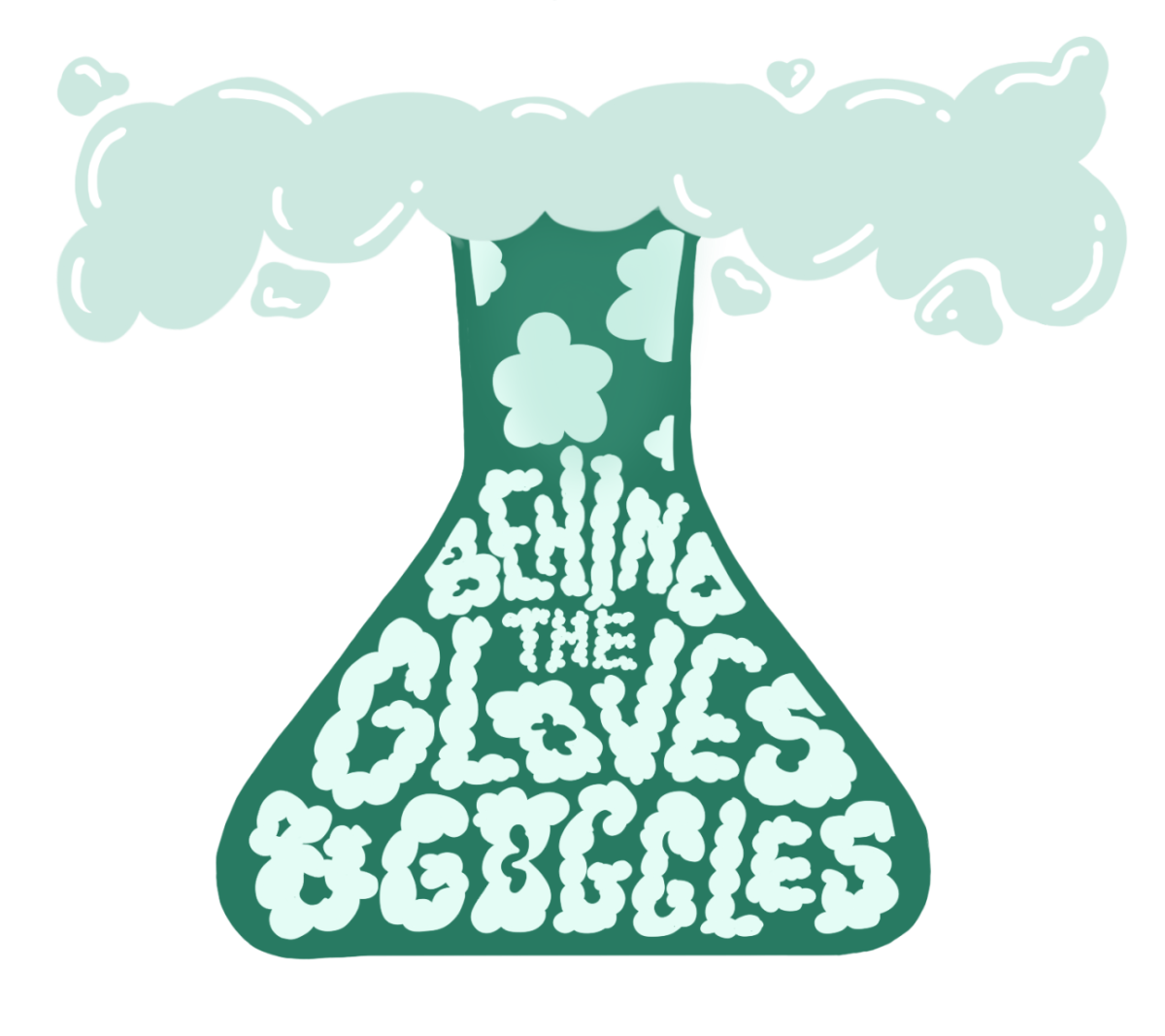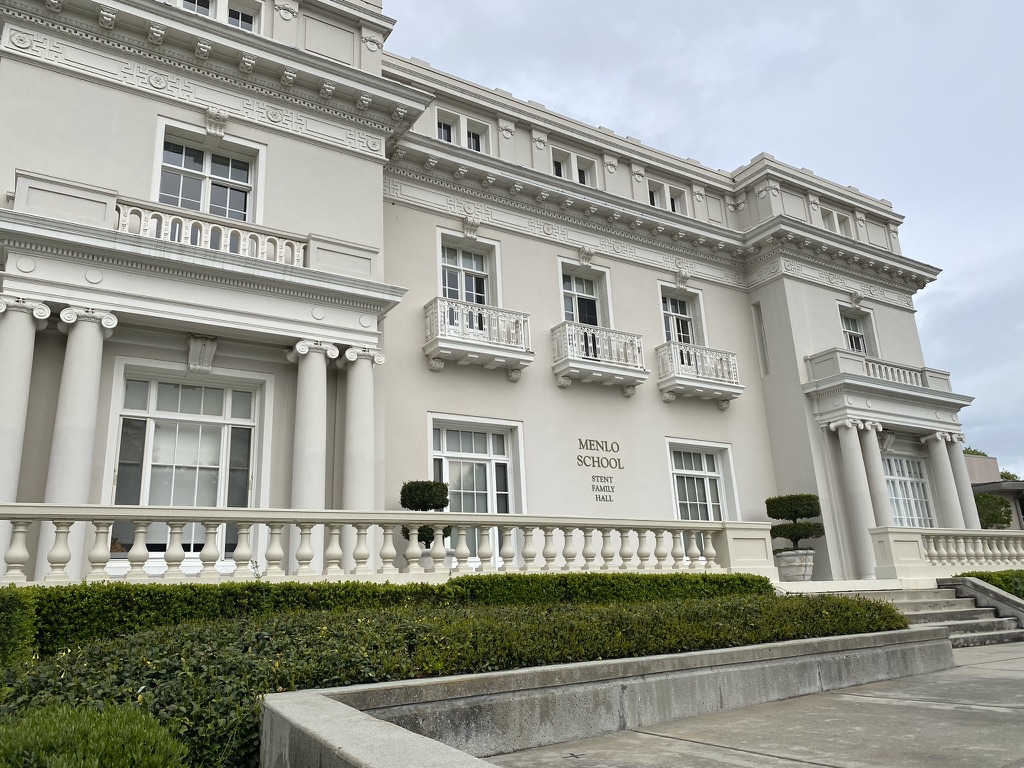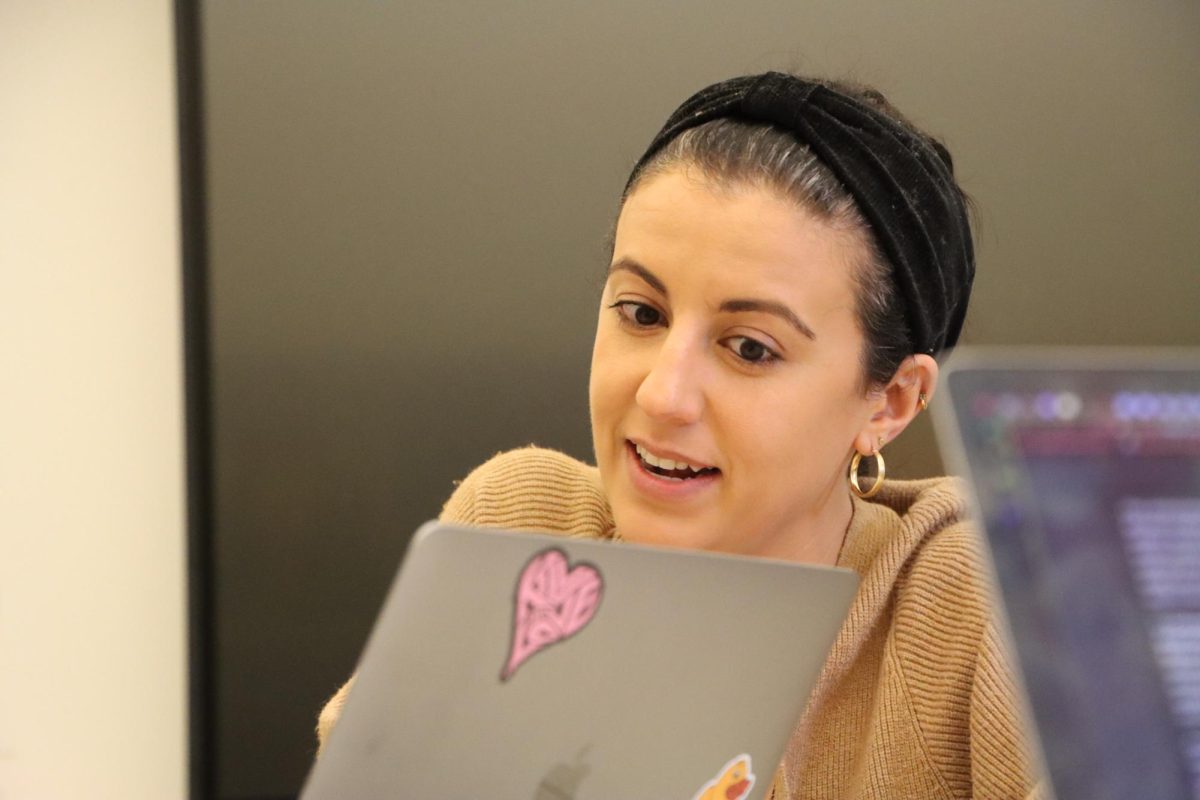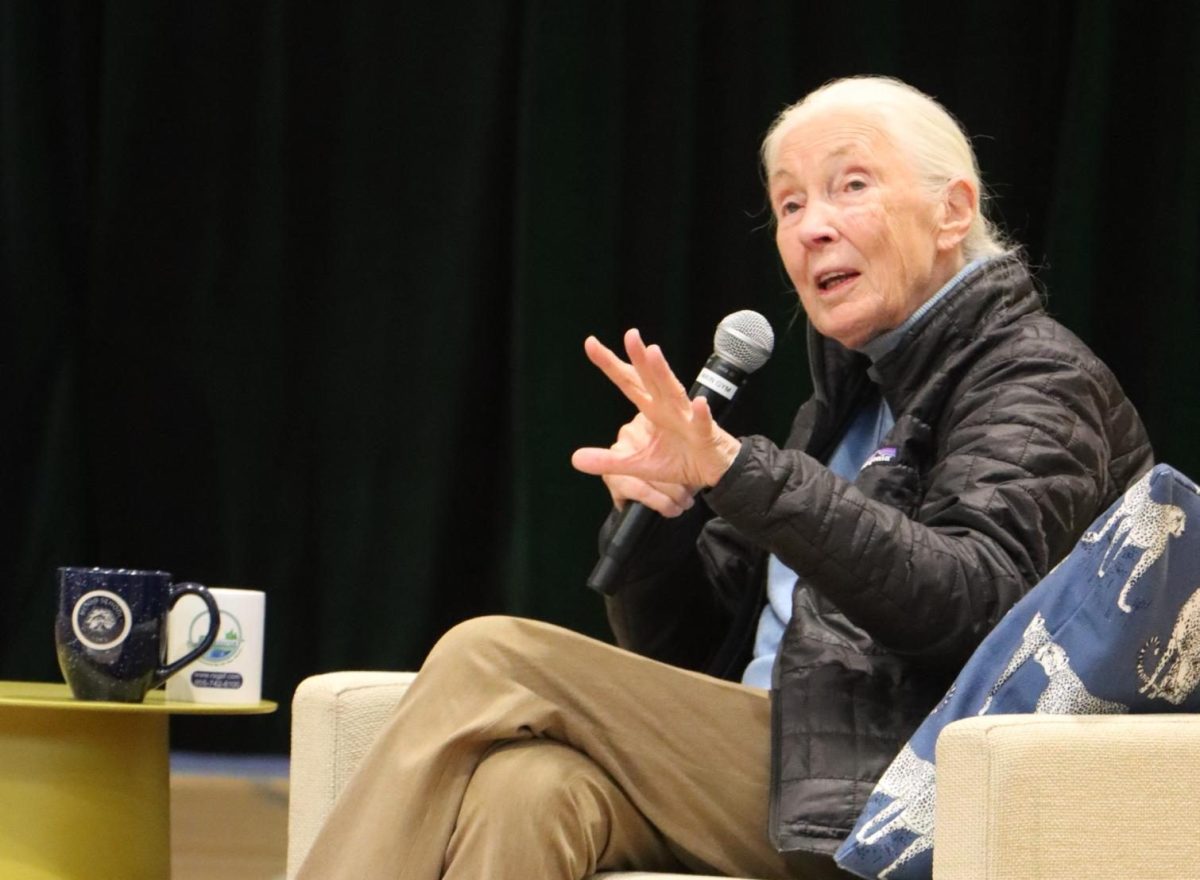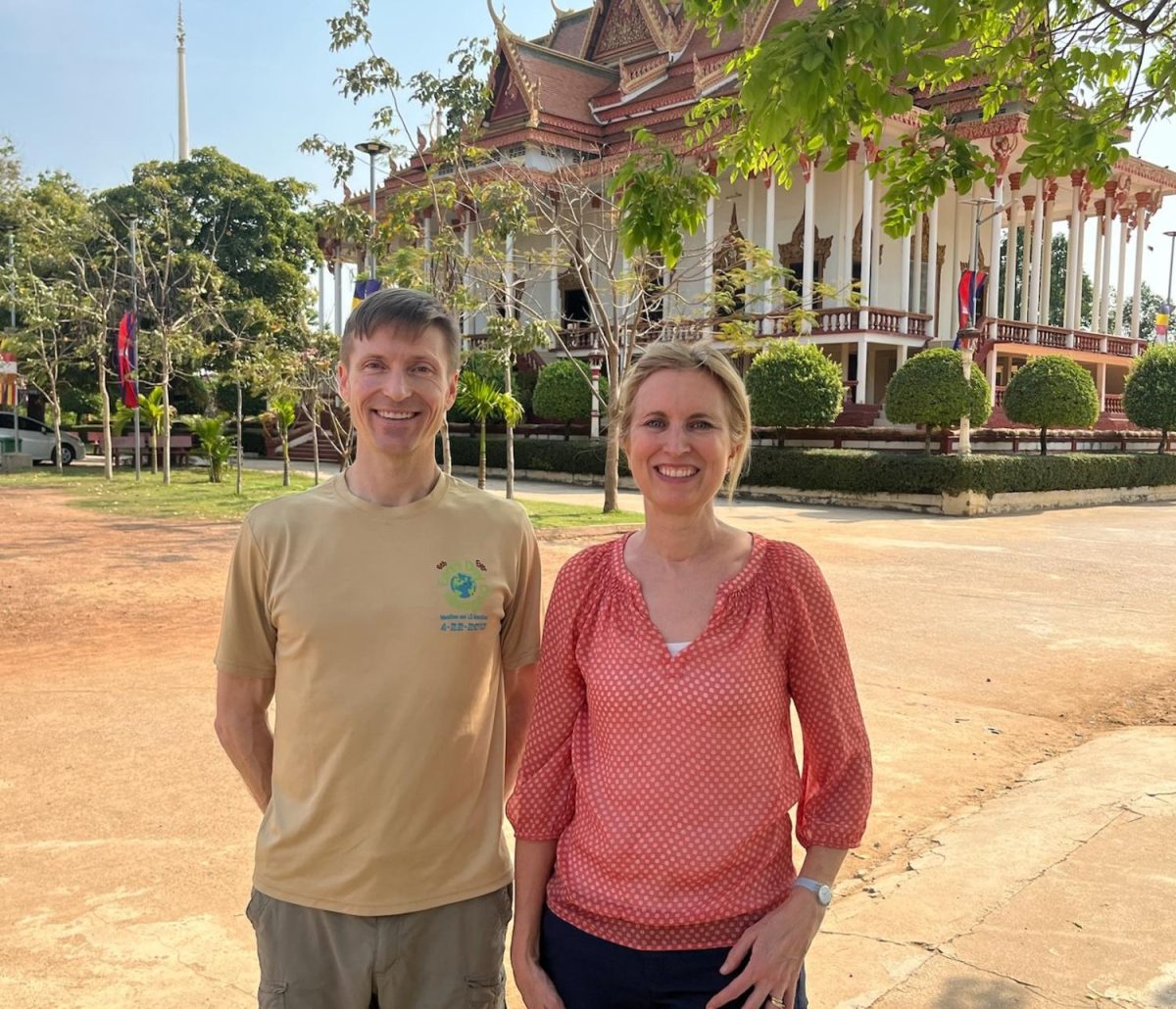A few weeks ago, the Contemporary American Issues class sent out a survey to the freshmen and juniors on the topics of race, gender, and sexuality at Menlo. The questions varied from how comfortable students are with homosexual public displays of affection, interracial relationships, and race and gender roles in the classroom. The class decided to survey the freshmen and junior classes to see a progression, as students grow older.
The project is meant to address the issues of race, gender, and sexuality at Menlo. “I personally saw this project as a way to evaluate the Menlo community as a whole. The topics we addressed are those everyone is aware about, but no one talks about,” junior Idalys Nava-Monje said. The point of this project is to identify student perceptions. The types of questions the surveyors were asking tended to relate to topics not generally discussed at Menlo. The questions helped glean the level at which the participating students were comfortable seeing different expressions of race, class, gender, and sexuality at Menlo. “We tried a different way of asking students questions while still targeting the same problems,” junior Olivia Ferrando said.
Although students often said they were comfortable seeing homosexual relationships or interracial relationships, there is a lack of evidence to support this. “It was interesting to see how Menlo students responded to the questions, mainly because what they said was not reflected in what we see on the quad,” Nava-Monje said. When answering the questions, many of the students felt that they would be comfortable in these situations, but the class found that in practice this might not be true. “I think that students want to be perceived as good people and that we all know that acceptance is the way to be, so I think who we want to be can shape an interview response,” Contemporary American Issues teacher Stephanie Portman said.
Another point of the project was not only to see what students believe, but how those views change over time. Some of the data show that freshmen tended to be more neutral when rating their level of comfort, while the juniors picked either strongly comfortable, or strongly uncomfortable in response to the questions. “Overtime, what we are exposed to changes our views,” Ferrando said.
To supplement the survey, the students in the class pulled a group of freshmen and juniors in to discuss the results of the survey in a documentary setting. The students were asked if the results accurately reflected what they believed to be true about Menlo, and if there is actually a difference between freshmen and juniors. While some of the questions posed were straightforward, whilst others required time and deep contemplation. When asked about how teachers view students of a different race or certain gender, some did not know how to adequately respond as they had never been aware of the role race plays in the classroom. This deep thought and inner soul searching was the primary goal of this exercise, it attempted to highlight certain social issues that many Menlo students take for granted or simply aren’t aware of. “We wanted to show what people at Menlo believe. It is interesting to see others people’s opinions on the topic not just from a graph perspective,” Ferrando said.
The project the students in the Contemporary American Issues class motivates students to think about race, class, gender, and sexuality in a new way as they brought up many touchy and thought-provoking questions. The students plan to upload their documentary at the end of the year in an effort to enlighten the community as a whole.


